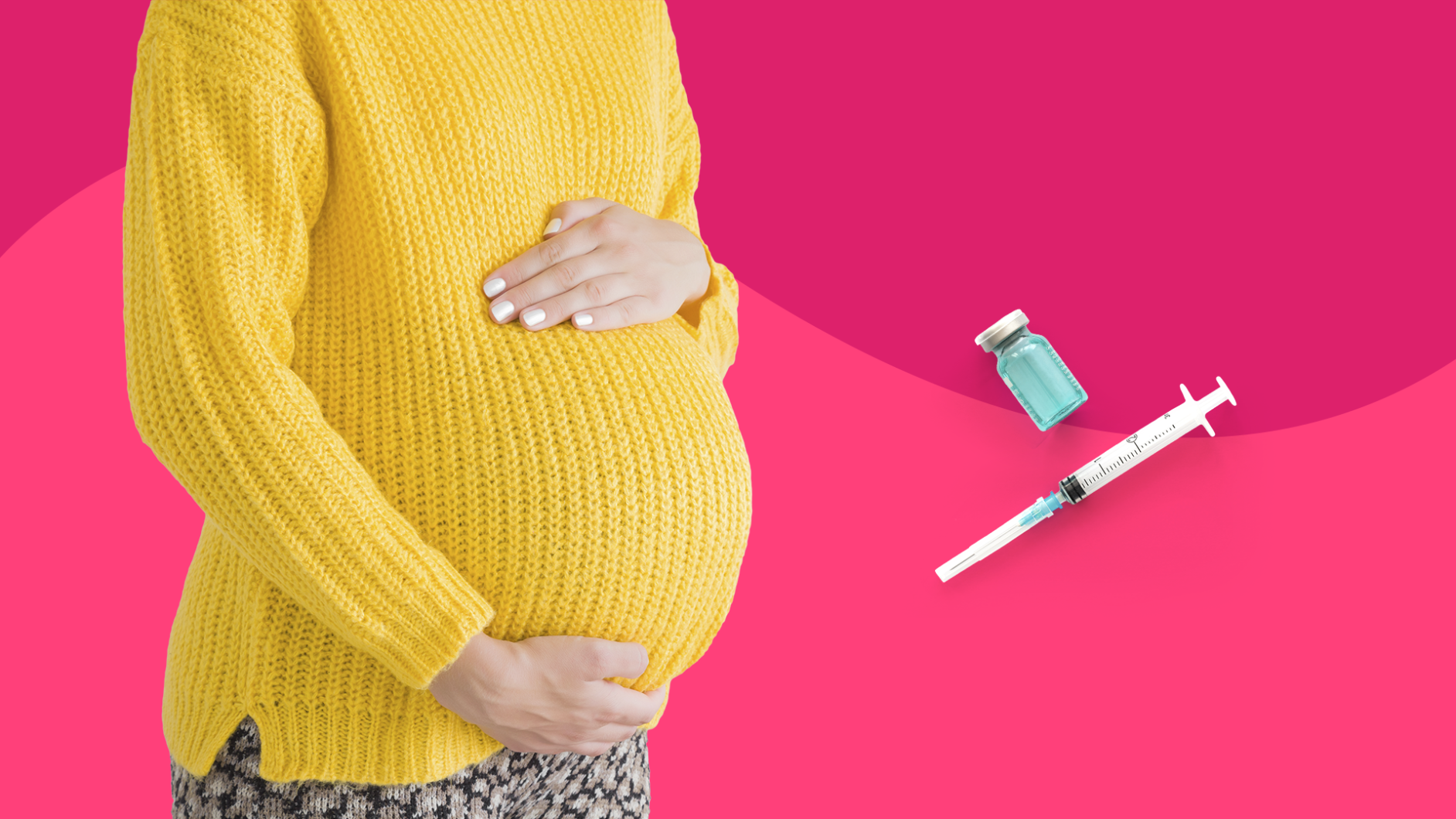Pregnancy books can easily become a long list of foods and products that are unsafe for expectant mothers. Sushi? Nope. Unpasteurized milk? No way. Skin care products containing retinol? Uh-uh. There are so many things to avoid, it can be hard to keep track of what’s allowed. With flu season on the horizon, many pregnant women may be wondering, “Can I get a flu shot while pregnant?” The short answer? Absolutely. Here are seven common questions.
1. Is it safe to get a flu shot while pregnant?
The Centers for Disease Control and Prevention (CDC) recommends that pregnant women get the flu vaccine to protect both themselves and their babies against the influenza virus, no matter how far along they are in their pregnancy. There are a number of scientific studies that examine vaccine safety during pregnancy. An overwhelming amount of data points say the flu vaccination is safe at any trimester of pregnancy.
And, studies show that the risks of not getting the influenza vaccination are higher for pregnant women. The flu is more likely to lead to severe illness (sometimes life-threatening)—like pneumonia—during pregnancy. Additionally, it can increase chances of miscarriage, premature birth, birth defects, and low birth weight. An immunization each year reduces risk of getting the seasonal flu virus, and reduces severity if you are infected.
RELATED: Which prenatal vitamins do you need?
2. Should I get a flu shot while pregnant?
Not only can pregnant women get the flu shot, but they should prioritize getting the flu shot. “Studies have shown that pregnant women who get the flu have more severe complications and an increased risk of being hospitalized compared to non-pregnant women,” says Danielle Raiman Plummer, Pharm.D., creator of HG Pharmacist, a resource for women suffering from hyperemesis gravidarum (extreme nausea and vomiting during pregnancy). “Benefits of getting vaccinated against the flu while pregnant include a decreased risk of neural tube defects caused by fever, the most common symptom of the flu.” A 2018 study by the CDC showed that getting the influenza vaccine reduced a pregnant woman’s risk of hospitalization by 40% on average.
3. Which flu shot is best for pregnant mothers?
One of the ingredients that causes some concern in patients is thimerosal, a mercury-based preservative that has been used in certain vaccines for decades.
“There is no evidence that flu shots that contain thimerosal are harmful,” says Tangela Anderson Tull, MD, an OB-GYN with Hoffman and Associates in Baltimore, Maryland. But there are thimerosal-free flu shots available if that would put you at ease.
The one flu vaccine you should avoid while pregnant, Dr. Anderson Tull says is FluMist, the nasal spray flu vaccine.
4. What are the side effects of the flu shot while pregnant?
The side effects of the flu shot are the same for pregnant women as for anyone who gets a flu vaccine. They are typically not severe, and could include:
- Soreness or redness at the injection site
- Fainting
- Headache
- Fever
- Muscle aches
- Nausea
- Fatigue
Most people who get a flu shot don’t experience any of these side effects. If side effects occur, they start right after getting the immunization and last for one to two days. In very rare cases, people can have an allergic reaction to the flu shot. If you have severe allergies (such as an egg allergy), talk to your healthcare provider before getting a flu shot.
The flu shot cannot make you sick, while pregnant, or at any other time. Another misconception is that vaccinations can cause autism in children. However, the American College of Obstetricians and Gynecologists reports that there is no scientific evidence for this.
5. Will the flu shot hurt your unborn baby?
Both Dr. Raiman Plummer and Dr. Anderson Tull confirm the flu shot is safe and actually passes protection to the developing baby, which helps your little one at birth.
“Antibodies pass from the mom to the baby in utero,” Dr. Raiman Plummer explains. “Since an infant cannot get the flu vaccine until 6 months old, it is very important for the baby to be born with the antibodies. Infants who get the flu are at an increased risk of complications, and the vaccine will help protect against the flu during the first few months of life.”
RELATED: Find the best pharmacy for a flu shot savings
6. When do babies need their own flu shot?
While the antibodies do provide protection early on, it’s important that babies older than 6 months of age get their own flu shot. The antibodies that pass through the placenta and breast milk don’t provide as much protection as a flu shot, and shouldn’t be treated as a substitute for a flu shot once a baby is old enough for his or her own, warns Dr. Anderson Tull.
Bottom line is there is plenty of data available that supports the safety and importance of the flu vaccine in pregnancy—and you can even contribute to that ongoing research.
“Each manufacturer… runs a pregnancy exposure registry,” Dr. Raiman Plummer explains. “This registry collects and analyzes outcomes during pregnancy and monitors for potential safety events. Any pregnant woman is welcome to participate.”
Find out more info about joining registries on the FDA website.
7. Is the flu shot safe while breastfeeding?
The flu shot is safe, and recommended for women who are breastfeeding, according to the CDC. Not only does it protect mom, it shares useful immunity with the baby through breast milk. Once the infant is older than 6 months, babies can have their own flu shot.











